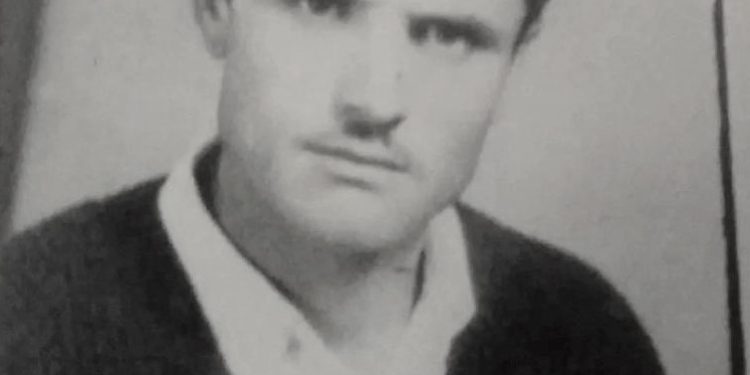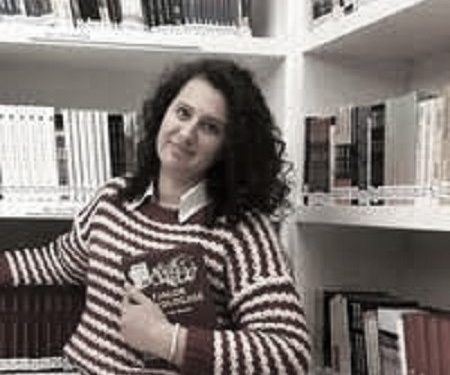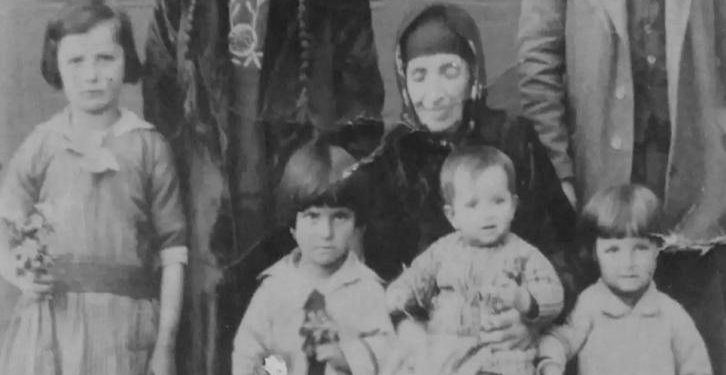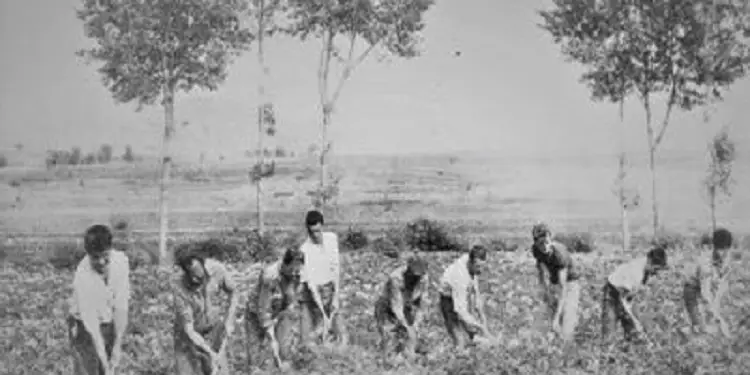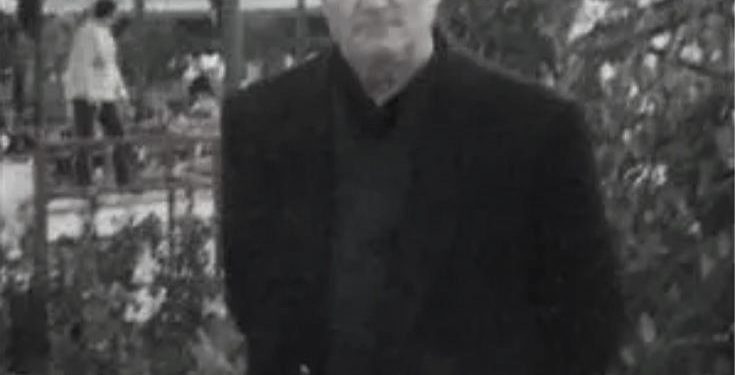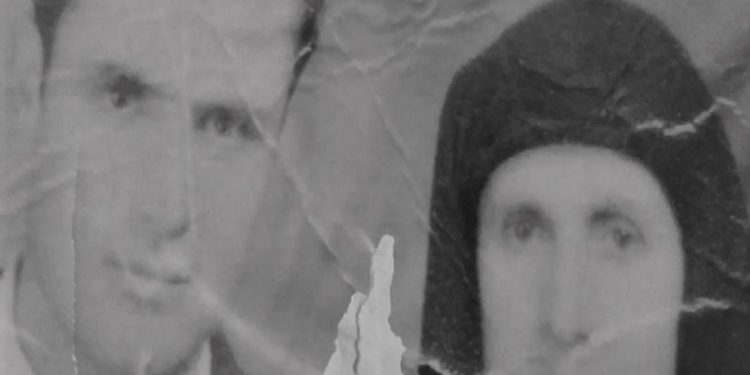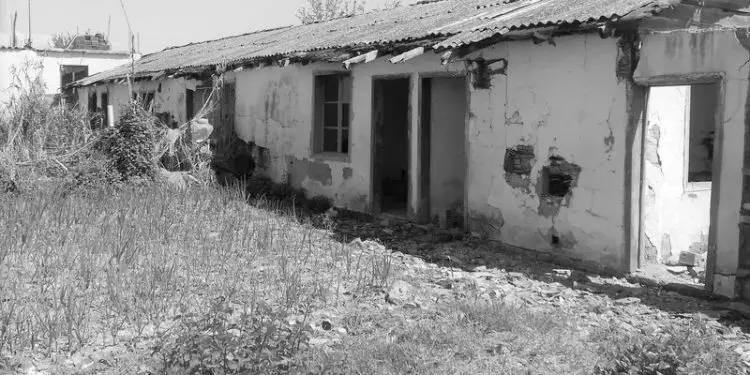By Najada Pendavinji
Memorie.al / During the endless exile, he lost his loved ones, who, on more than one occasion, were sent away without honor. They were not allowed to bury the 11-year-old cousin, who the imprisoned uncle had bequeathed to her father, in the cemetery, or to perform the last respects of the 20-year-old brother. Gani Sulka, from the age of 9, remembers only persecution that continued for 40 years in a row, from the one that the children accepted in the game, to chase him with words and kicks, to his own children, when his daughter was taken out in front of the school, to call her a kulak’s daughter. His full testimony.
Mr. Gani, what is your family history?
I am Gani Sulka and I was born in 1942 in the village of Bozhigrad in Devolli, in a large family of 10 members, four sisters and four brothers and two parents, Riza and Demirhan Sulka. The story of my family, which experienced an endless ordeal of suffering and hardship as a result of the class war of that regime, begins in 1950.
Until that time, the Sulka tribe had developed the family economy by owning agricultural and livestock lands which had numerous productions. We had a two-story house with 12 rooms where 18 people lived. We lived honestly, we were a patriotic family, we supported the ideal of freedom, but the year 1945 came, the process of collectivization began, eliminating every square meter of private property and stripping the landowners of their economic power, who not only lost their wealth, but also freedom.
Even my family, which belonged to the rich class of society, did not escape the class war. The genocide against this layer was so great that the persecution would exceed any kind of goal.
When did the communist regime’s persecution of your family begin?
Before the migration of the entire Sulka tribe took place, in 1949, my uncle, Sefedin Sulka, was arrested and charged with agitation-propaganda against the popular government, because during that time, he had a passion for a musical instrument, the “tambura”, which it fell when he got together with his friends.
That alone was enough for the regime to call him an “enemy of the people”. He left behind six little girls who were raised by my father, Riza Sulka, under whose responsibility there would already be 14 children and the youngest was me, only 9 years old. A year later, the communist revenge would extend to the whole family.
With the label “kulak” my family turned into the “sworn enemy” of the communist regime. Thus began the persecution of the family in several generations. It was June 20, 1950, a warm summer, but “winter” would soon come to us. The hands of the clock marked 12:00, midnight, when the chairman of the People’s Council, together with the powerful of the village, Qemal Hameti, knocked on the door of the house. They go inside.
We children were all huddled behind our mother. With that rudeness and arrogance of theirs, they turn to the father and without any explanation, in the absence of irons; tie his hands with barbed wire. For a moment they turn from us and see that only my older brother, Myfiti, was standing.
In a frightening manner, they tied the hands of a 13-year-old child, such as Myfiti, with barbed wire. They took all of us with only the cloths of our bodies, leaving all our belongings and memories there, in that house, which would already be in the hands of the communists, never to be taken again.
There was also the dowry of the girls who had worked with so much love. From our warm home they bring us to the prison yard of Korça. Here we were almost 50 families who were waiting for the heavy punch of the dictatorship. They only kept us one night. All the men of the families were handcuffed and chained one after the other, pressed against the wall.
We children were stuck behind them. While the women fed the men who were chained. Late at night they bring a pump with medicine and spray us one by one because of some disease.
In the morning they flew us like a sack of flour on a truck and started us on a long road. At 7:00 a.m. they stopped us in Fier. We only stayed here for one night and then my whole family was exiled to Aranitas in Mallakastra. Gani’s parents, grandmother and sisters
What happened to you in exile?
I was only 9 years old; I didn’t understand why we were leaving our shelter. I didn’t even know what exile was, but when we got to Aranitas, we faced a different reality that we hadn’t encountered before.
At that moment, the chairman of the Council comes and introduces us to the place where we will stay. It was a goat hut, which had no roof, no doors and no windows, covered with cattle dung. He tells us that we have to remove the manure to get inside.
My father did not accept such a thing; he could not accept his children sleeping there. With many objections, they opened the school door and told us to take out the trash until the holidays are over. And so we did. In short, they didn’t give up and they wanted us to live in the most inhumane conditions.
At the door of our house there was a guard who was Hekuran Xhaferi, to follow us every moment. For weeks without eating, without drinking, without washing. The lonely mother boiled nettles and we children drank their juice to quench our hunger. Hunger which would take the life of Lula, uncle’s daughter. Lule Sefedin Sulka, was only 11 years old when she died in the prime of her life.
Dad closed in on him, pain gripped him because he could not protect one of the bequests that his uncle had left him. His arms were small compared to the communist claws. The biggest cruelty was when we were not allowed to bury Lule in the village graves. Even the villagers themselves did not accept that an interned child should be laid to rest in the cemetery of their village.
How could you bury him?
Communism denied not only life, but also death. He would also destroy the last apartment. We had nothing to do. We all gathered as a family and covered her body with soil, in a stream we had near the apartment where we lived. Several times the body was revealed by the water, but after a while we were no longer looking at it. The water ate her corpse. Her remains disappeared, never to be found.
How was life in Shtyllas camp?
Until 1955, we stayed at Aranitas. In January 1960, we were taken to the village of Shtyllas in Fieri, where the prison camp was moved to the camp of internees that we were.
In this camp there were families from different districts such as: from Treni, from Ponçara, from Shkodra, Tropoja, Malësia e Madhe, Labëria, etc. Here they started supplying us with loaves of bread. Years passed, we children were growing up. I was allowed to continue school, I only completed six grades.
The differentiation I would experience from my peers there at school was enormous. They are moments that for a child, always remain in his memory. That system was also baked into the minds of the children. My peers accepted me into their game with the desire to hit me with words and kicks.
Do you remember any specific case?
Let me tell you a case that may be too childish, but that made me feel bad. We were playing with a ball and I, as a body, was what I was, I scored goals. When I scored goals, those who ate the goal kicked me. When I shot outside the goal, I was kicked by my teammates. They always called me “Greek”, I was an exiled child, and from society I felt lost.
This was the greatest injustice that could be done to a child, exclusion and differentiation from society. The ordeal of suffering would continue, but we would not be broken. Some of the sisters were married, they became hardworking, honest girls, educated with the spirit of the family. Father and mother were parents who sacrificed for us, their children.
During the years of exile, did you feel monitored and watched?
Of course yes. We were isolated from other countries; they called us every morning and evening, to see if any of us were not following the isolation order. The most important instrument of that regime was surveillance, observation, espionage, which served to keep under control all of us who looked at us as if we were the biggest aggressors of this regime.
It was 1958, when my brother Rainbow left home for almost a week. At the time he was 20 years old, we couldn’t find out the reason for his departure and we didn’t know anything about what happened to him. The State Security called this action an escape abroad. As a result, our whole family was surrounded by officers and soldiers who asked us for information about where our brother had gone. The fear we had for our brother was not enough, but we also had to face the suspicions of the State Security.
The father was tortured to get him to say something, while the mother was crying for her son. Only after a week, his body was found by the villagers, on the side of the river, where the water had taken him out. It was the loss of another life, which we would also not be able to convey as it should. We buried him naked in the village cemetery, as we were not allowed to perform the rites. The desolate mother told him: “When I die, bury me naked like my son.” It was a great pain for everyone.
Time passed, but the pain increased. It was 1962, when we also lost our father to a serious illness. I tried hard to save him, but help was not given to us. That night I went by bicycle to Levan in Fier, to look for the doctor, Astrit Delvina was called, who did not come. When I am halfway back to the village, the villagers inform me that my father has died. We have faced many sufferings.
This same year, I completed my military service at Durrës Hospital, in the engineering department. I returned in 1964, finding the family in exile again, there in Shtyllas, after the sentence of Internment-Deportation was increased by 5 years.
Do you have a special event that sticks in your mind?
We will go back in time years later, in 1954, when I was only 13 years old. It is an event that shows that communism was paranoid in nature. He was afraid even of a child’s mind. As a child, I didn’t want to be isolated, I wanted to be free, to go and see my older sister, who was married in Vishocica, whenever I felt like it.
And so I did. I left without my father’s permission and made my way to my sister’s village. When I went I didn’t encounter any problem, but when I returned, the Security police noticed a child traveling alone and they caught me in Bilisht. They acted like they caught a criminal and not a child. They took me and took me to Korca prison, where they kept me only one night. They asked me meaningless questions like: “Where would I run away to?” How many of us were there? What will we run away with?”, etc.
They scared me by threatening me that I would suffer badly if I didn’t tell. I had nothing to tell you but the truth. I don’t know how they were convinced and let me go; they put me on the bus together with a civilian, who accompanied me to Elbasan. And from there he put me on the Fier bus, telling the driver to watch me carefully, lest I get off his way. It was all a meaningless scene that they attached so much importance to, as if some great danger was taking place. This is what it was like to live in communism…!
You spent a long period in exile, 40 years, how did you experience the arrival of democracy?
It is a lifetime of poverty, injustice, suffering, terror, loss and endless persecution across generations. It was 40 years since I spent in exile. There I married the daughter of a political convict, Ali Meçolli. Yes, in exile, my three children were born, who also experienced social differentiation.
The girl, Edlira, was taken out in front of the school and called a kulak child. It was horrible for the child to experience what I had gotten under my skin. The ordeal of suffering for us ends in 1990.
We loved the freedom that we had missed so much, but when we returned from exile, we could no longer find the shelter of our grandparents. They had razed it, leaving no trace or memory of it. All the lands we had for which we suffered and exile had been taken by others. Today, we have a missing democracy that, God willing, changes for the good of our children! Memorie.al




